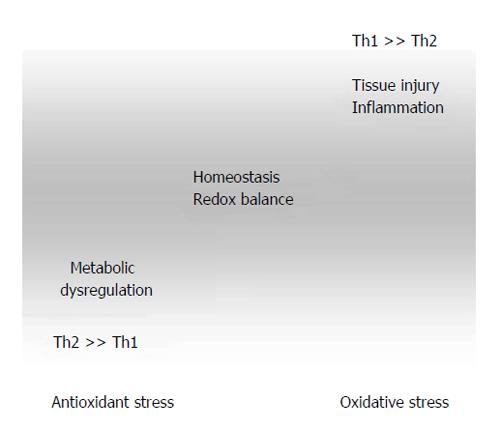Copyright
©2014 Baishideng Publishing Group Inc.
World J Cardiol. Jun 26, 2014; 6(6): 462-477
Published online Jun 26, 2014. doi: 10.4330/wjc.v6.i6.462
Published online Jun 26, 2014. doi: 10.4330/wjc.v6.i6.462
Figure 2 Dysregulation of redox- and Th1/Th2-balance in the course of atherogenesis.
Excessive antioxidant intake in combination with other risk factors such as high caloric diet and low physical exercise lead to suppression of Th1-type immunity, thereby favoring Th2-associated development of allergies and asthma and promoting juvenile obesity. Factors such as high blood pressure and hyperlipidemia lead to shear stress and tissue injury. Inflammatory reactions are associated with high reactive oxygen species generation, which results in immunotoxicity due to oxidation of biomolecules (lipids, proteins, etc.).
- Citation: Mangge H, Becker K, Fuchs D, Gostner JM. Antioxidants, inflammation and cardiovascular disease. World J Cardiol 2014; 6(6): 462-477
- URL: https://www.wjgnet.com/1949-8462/full/v6/i6/462.htm
- DOI: https://dx.doi.org/10.4330/wjc.v6.i6.462









